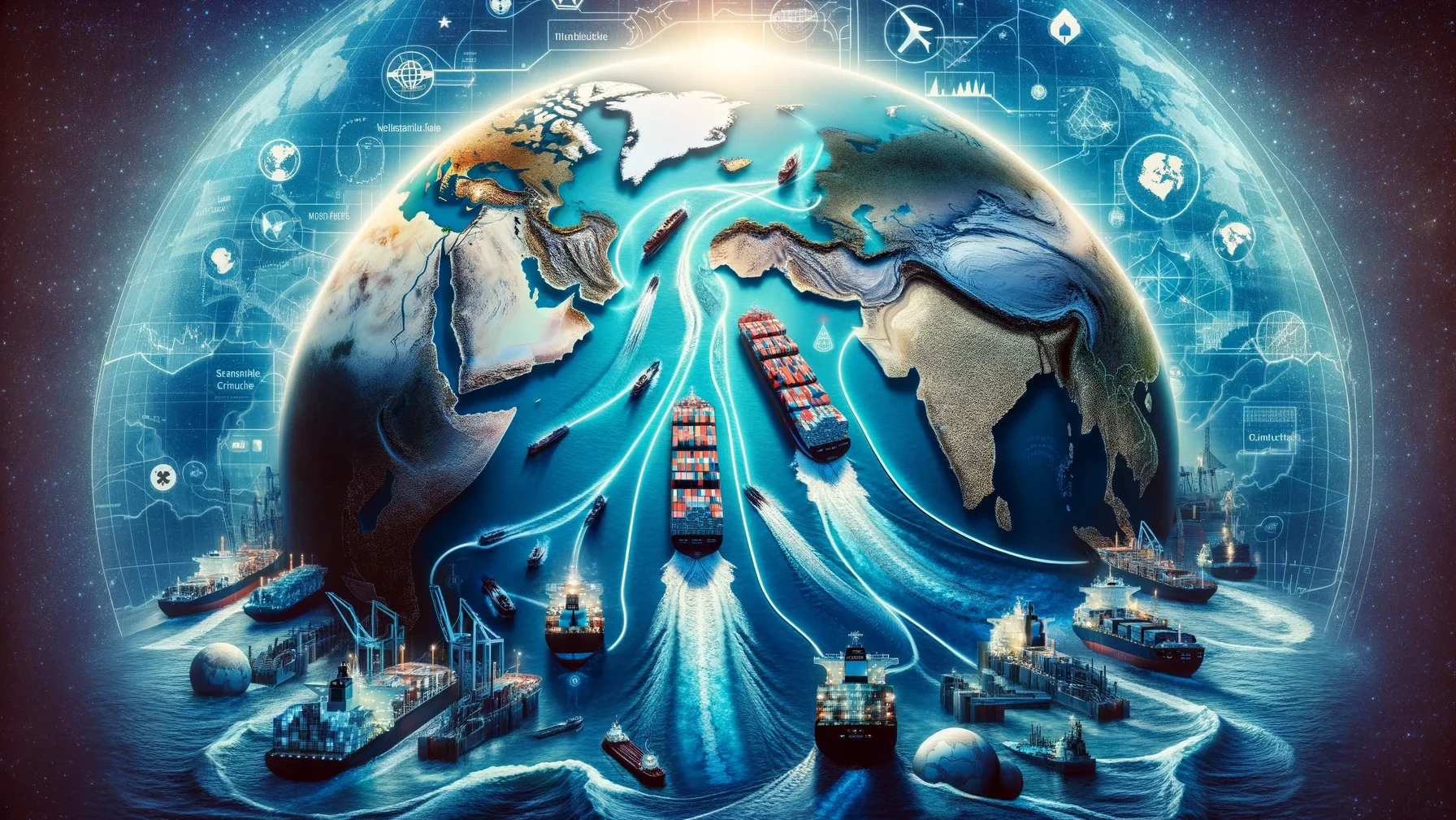The Suez Canal and the Sea Lane Conflict
Al-Ittihad, UAE, December 28
The Strait of Hormuz and the Bab el-Mandeb strait hold immense significance in the realm of global trade, serving as crucial sea lanes overseen predominantly by Arab nations. The former enables the smooth passage of 35% of the world’s daily oil exports, encompassing 85% of Asian oil exports and 20% of gas exports. Meanwhile, the latter facilitates about 10% of all oil trade. Moreover, the Strait of Hormuz bears an additional distinction as a conduit for 12% of the overall volume of international trade. Notably, 98% of this figure is attributed to the Suez Canal, solidifying its pivotal importance to global trade since its inauguration more than 150 years ago. The connection between the two straits and the Suez Canal has bestowed upon the Arab region an unparalleled strategic importance. No other region can boast the same economic, military, and geopolitical advantages. Consequently, any threats to the closure or safety of this trio have sparked international concern. Currently, the Houthi militias in Yemen pose a serious threat to Bab el-Mandeb, causing damage to numerous ships that traverse this vital corridor each day. In response, major maritime transport companies such as Denmark’s Maersk, Taiwan’s Evergreen, and the British oil giant BP have decided to suspend the passage of their vessels through Bab el-Mandeb. Instead, they have opted to redirect their ships through the waters of the Cape of Good Hope. This alternative route incurs significant additional costs and triples the transit time but is deemed necessary to mitigate the risks. In terms of expenses, it is ultimately the end consumer, primarily in Europe and Asia, including the Arabian Gulf region and Arab nations as a whole, who bears the burden. Moreover, distributors are capitalizing on these advancements to further increase prices, surpassing the additional transportation costs they have incurred as a result. The Suez Canal holds immense significance for the Egyptian economy. As previously mentioned, the Suez Canal and Bab el-Mandeb are intertwined in their importance. Without the Suez Canal, Bab el-Mandeb would not have gained such prominence, and vice versa. This has led to hasty assumptions regarding the development of alternative routes, including the utilization of newly constructed roads or seizing opportunities presented by the climate crisis that allows ships to navigate the Arctic. In reality, none of these proposed projects, such as the Chinese Belt and Road Initiative or the Indo-European Corridor passing through the Arabian Peninsula and the Arctic, can truly replace the Suez Canal. Moreover, the Belt and Road Initiative is facing challenges, particularly concerning its reliance on numerous African countries. Additionally, operating consistently in the Arctic comes with significant risks and is highly dependent on unpredictable climate conditions. These factors may result in losses for transportation companies. It is important to note that these new projects aim to cater to the exponential growth in international trade volume, a demand that the Suez Canal alone cannot accommodate, despite its recent expansion efforts. Therefore, the current situation in Bab el-Mandeb is simply part of a larger geopolitical conflict. The Houthis are just a weak tool and a proxy that cannot be relied upon as a formidable force. If the managing forces of the conflict decide to intervene, the Houthis can be easily subdued. They are nothing more than pawns on a massive chessboard. Exploiting the Israeli war in Gaza and its devastating impact on the Palestinian people, the Houthis try to gain advantages at the expense of Palestinians. However, their hostile actions have had a more temporary impact on the revenues of the Suez Canal, an essential financial tributary for Egypt, rather than significantly affecting Israel. These revenues, amounting to $10 billion last year, are of great importance to the desperate needs of the Palestinian people, which Egypt is keen on supporting. It should be noted that these effects on the Suez Canal are only temporary. The current crisis will soon come to an end, restoring the Suez Canal to its prominent status as the most significant maritime route in the world. No other proposed projects will be able to rival or replace the unparalleled significance of the canal. —Dr. Muhammad Al-Asoomi (translated by Asaf Zilberfarb)


